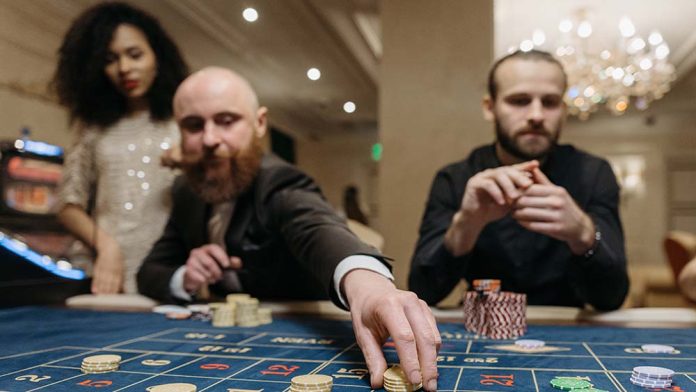Social casino games frequently prioritize competition. Leaderboards, rankings, and one-on-one challenges are everywhere. What if the real magic happens when people play together instead of against each other?
Turns out, players who engage in things like team events, shared goals, and group milestones feel more satisfied. They also tend to stick around longer and form stronger connections with others.

Why Cooperation Matters More Than You Think
People often assume that they play for the purpose of winning. But in reality, many users are seeking fun, connection, and a break from stress. Games that support shared experiences help meet these needs better than solo play or strict competition.
Features like team-based challenges, community prizes, or even daily group missions give players a sense of belonging. They’re not just grinding for points—they’re helping their team succeed. This sense of purpose changes how people experience the game.
And while competition fades, cooperation can deepen over time. That’s why social gaming continues to attract a growing audience—it encourages collaboration and shared wins instead of just focusing on competition.
Key Benefits of Collaborative Social Gaming
Players who join collaborative events or features often enjoy a richer experience. Here are a few surprising upsides:
- Longer engagement: Players who feel part of a team tend to return more often.
- Deeper enjoyment: Helping others or working toward a common goal can feel more rewarding than beating a score.
- Community building: Stronger social ties often form around shared challenges.
Game categories that offer these options create a different kind of loyalty. It’s not just about daily logins. It’s about being part of something bigger.

Popular Collaborative Features Players Love
Here are a few co-op features that are getting real traction on social casino platforms: Many of these features are designed to boost group interaction and make gameplay feel more immersive.
- Team Missions
- Players complete tasks together.
- Group performance determines the distribution of rewards.
- Guild or Club Systems
- Members can convene in small groups or “clubs” to engage in conversations, provide mutual support, and engage in team competitions.
- It often includes exclusive perks or bonuses.
- Community Events
- Timed events engage the entire player base.
- Progress bars, shared goals, and unlockable rewards make it exciting.
These features don’t just add variety. They shift the focus from “me” to “we.”
What Makes Cooperation So Engaging?
When players work together, several things happen: they begin to form bonds that go beyond the game itself, creating a sense of friendship and shared purpose.
- Motivation increases. People push themselves more when others depend on them.
- Trust builds. Teams start to support each other, even in simple ways.
- Fun multiplies. Experiences such as shared jokes, near misses, and wins become more significant when shared with others.
This phenomenon is why many users say that playing as part of a group gives them more meaningful experiences.

Final Thoughts
While leaderboards and scores have their place, they’re not the only path to player joy. Social gaming is evolving, and the power of cooperation is impossible to ignore.
Games that tap into our social nature—helping others, working as a team, and celebrating wins together—offer something more lasting than just a top spot on a list. That’s why the best platforms are starting to lean into collaboration, not just competition.

